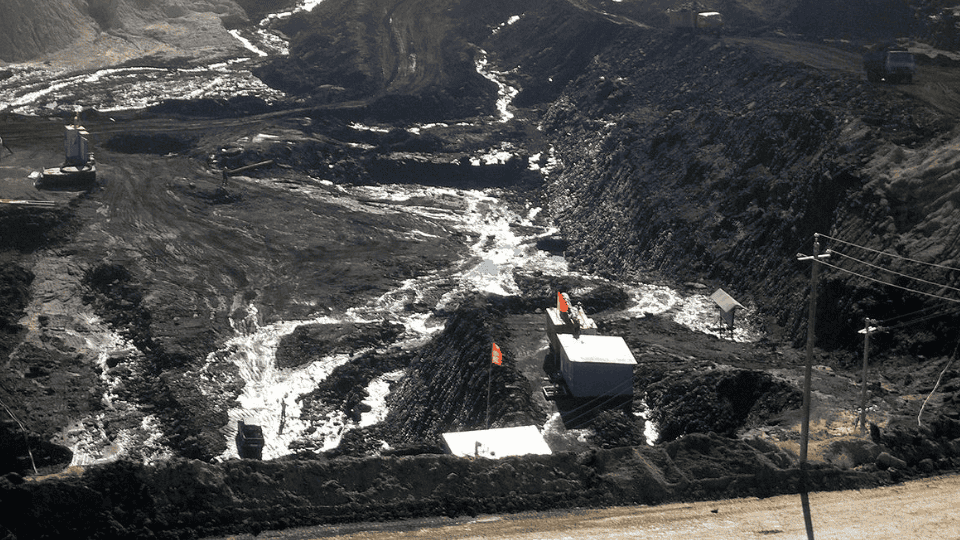The Booming demand for Coal has reignited Mongolian Growth. When Mongolia’s new government swept into power last summer, one of its first actions was to declare the country in the grips of an economic crisis. Now, with winter temperatures dipping 20 below freezing, there’s a surprisingly warmer glow.

The International Monetary Fund has been making positive noises about a financial program while China and even Japan appear supportive. In fact, China has already eased the funding squeeze by expanding Mongolia’s borrowing capacity in currency swaps by $1.5 billion.
But the Chairman of the Mongolian People’s Party, Miyegombo Enkhbold, wants more. Specifically, Enkhbold – who is also Chairman and Speaker of the State Great Hural, Mongolia’s parliament – has asked China for a loan. The terms? The Mongolian government wants to pay no more than 2% in annual interest over a period of 20 years.
This target looks fairly aggressive considering the country’s bonds are yielding closer to 8.5%. Yet China hasn’t dismissed the proposition. Instead, Xi Jinping last week called for more concrete exchanges between the two nations’ ruling parties. The President was reported as saying – and the language is important here – that China has pursued relations with Mongolia from a “strategic standpoint and with a long-term perspective.” He vowed to “enhance coordination and cooperation with the country to boost bilateral all-round strategic partnership.”
So what does that all mean? Roughly translated, China is happy to provide funding – but only if it is tied to meaningful projects and closer economic cooperation.
Fortunately, China just so happens to have a deeply meaningful and strategic interest in Mongolia – namely, the largest undeveloped coking coal mine in the world. State-controlled China Shenhua and its consortium partners Mongolia Mining Corp. and Japan’s Sumitomo are the only entities with an approved tender to develop the Erdenes Tavan Tolgoi mine. All they’re waiting for is approval from the Mongolian government.
Mega projects
There’s every reason to expect Mongolia to give its consent to development. In concert with securing external funding, Mongolia needs to present a credible budget for 2017. This is key to the IMF’s decision on terms and conditions for assistance. The government isn’t taking any chances. While discussions with the IMF are still underway, an official budget proposal has just been approved. Notably, it includes sizeable projected revenue from the development of Erdenes Tavan Tolgoi.
According to several comments from the Ministry of Finance in local media, the extra revenue will come from the mine itself as well as from the construction of a railway to boost deliveries. The two developments, the Prime Minister said recently, go hand in hand as “one project” to build sustainable revenue. “Five to six mega projects will be started by next spring,” beginning with the Tavan Tolgoi mine, railway and power station, said Jargaltulgyn Erdenebat.
Right time
The timing could hardly be better. The biggest commodity bull market has to date provided Mongolia with only moderate benefits. One reason is that, without a rail track to take its coal to China, Mongolia has to rely on more expensive and less efficient trucks. Another is that the coal itself fetches less because it’s unwashed. While premium hard Australian coking coal prices have rocketed 250% since April to over $300 per ton, Mongolia’s unwashed variety fetches just $32. These cheap supplies crowd out any private local producer seeking higher prices.
This isn’t the way the coal industry was meant to work. The government’s “one window” policy mandates all coal companies to officially agree a single price. The unwashed coal is also anathema to the government’s mantra of value-added exports.
Unsurprisingly, the new administration has begun tackling these issues. Last week, Prime Minister Erdenebat instructed coal exporters to adhere to “one window.” Discussions followed between Erdenes Tavantolgoi JSC, Energy Resources LLC and Tavantolgoi JSC on agreeing a single price, local media reported. The companies will most probably be compelled to have their coal washed by Mongolia Mining Corp., driving incremental revenue for MMC and power to raise the average selling price for Erdenes Tavan Tolgoi coal.
Dizzying growth, again
For an old industry, momentum as building fast. MMC earlier this month received creditor support for a debt restructuring, allowing it to emerge from default and to participate in the consortium bidding to develop Erdenes Tavan Tolgoi. That process is likely to move forward in the next two to three months.
But MMC isn’t waiting any longer to take advantage of coal’s surge. It recently signed an offtake agreement at $107 per ton for the month of December. Had Mongolia achieved this price rather than $32 on its approximately 30 million tons of coal production this year, GDP would have been $2.25 billion higher.
So what prospect does 2017 hold? It doesn’t take Herculean assumptions to expect that through improvements and reform, Mongolia’s coal companies can collectively produce 40 million tons next year. At an average price of $105 per ton, that would represent more than $4 billion in economic activity for the sector – or an increase of over $3 billion compared with an estimated $960 million for 2016. For Mongolia’s $12 billion economy, this would mean a 25% jump in GDP, returning the economy to the type of dizzying growth rates seen last decade.
Win-win
The most important byproduct of a crisis is the opportunity for change. For investors, the scale of the opportunity is typically dictated by the rate of change. Central to the investment case for Mongolia is the approval of the MMC/ Shenhua/ Sumitomo consortium to develop both the Erdenes Tavan Tolgoi mine and rail to China. This will lift both coal volume and prices, and carry Mongolia’s economy with it.
With 65 of the 76 seats in Parliament, the ruling MPP has the power to make the sweeping changes required to rehabilitate the coal industry and unleash economic growth.
For the Mongolian government, one further key benefit could follow. Most of Mongolia’s 3 million citizens hold shares in Erdenes Tavan Tolgoi that were allocated in 2012. The value of those shares could appreciate significantly if managed through the consortium with a railway to China. Engineering economic recovery while at the same time boosting the value of these shares adds up to a win-win opportunity too good to let slip – particularly with presidential elections approaching next year.
Disclaimer: This article is originally written by Nick Cousyn. Nick Cousyn is Chief Operating Officer at BDSec JSC, Mongolia’s Largest Broker and Investment Bank. This column does not necessarily reflect the opinion of the editorial team or FronteraNews.com.
For latest stories on Business, Market Updates, Sports, Tech, National and International News, Follow FrontEra News on Facebook, Twitter and Join our FB Community group.



